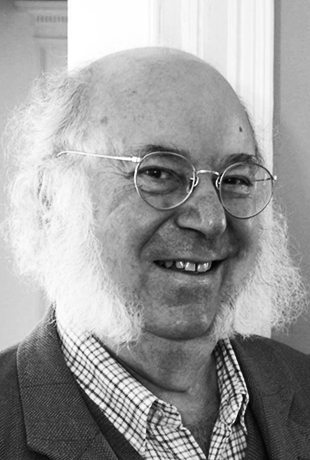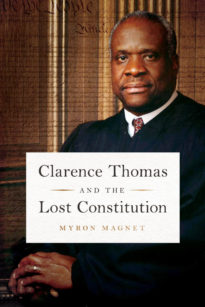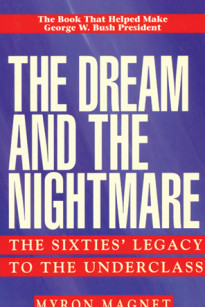Free shipping on all orders over $40
MYRON MAGNET, the editor of City Journal from 1994 through 2006, is now the magazine’s editor-at-large. A former member of the board of editors of Fortune , he has written on topics ranging from American society and social policy, economics, and corporate management to intellectual history, literature, architecture, and the American Founding.
His book, The Dream and the Nightmare: The Sixties’ Legacy to the Underclass argues that the radical transformation of elite and mainstream American culture that took place in the 1960s produced catastrophic changes in behavior at the bottom of society that gave rise to the urban underclass. President George W. Bush told the Wall Street Journal that it was the most important book he’d ever read after the Bible, and Bush strategist Karl Rove calls The Dream and the Nightmare “a roadmap to the president’s compassionate conservatism.ˮ Hilton Kramer called the book “an indispensable guide to the outstanding question of the day,” while columnist Mona Charen deemed it “the book of the decade.”
Dr. Magnet’s widely praised The Founders at Home: The Building of America, 1735-1817 brings to life “the construction of a country,” Richard Brookhiser wrote in National Review, “from first thoughts to finishing touches—from the Zenger trial to the Battle of New Orleans”—through a series of lively biographical sketches that provide “the pleasures of biography, while putting us back in the texture and complexity of a world.” The book not only dramatizes what the Founders did but also analyzes what they thought, in order to clarify just what kind of country and Constitution they strove to create.
Dr. Magnet is also the author of Dickens and the Social Order —“ Perhaps he will consider writing a sequel,” the New York Times wrote: “even if it turned out to be only half as good as Dickens and the Social Order, it would be very well worth reading,”—and editor of The Millennial City: A New Urban Paradigm for 21st-Century America; What Makes Charity Work? A Century of Public and Private Philanthropy; Modern Sex: Liberation and its Discontents, and The Immigration Solution: A Better Plan than Today’s.
President Bush awarded him the National Humanities Medal in 2008.
Titles by this Author
-
Read More
Clarence Thomas’s 1950s childhood, as a black kid in hyper-segregated Savannah, under the vigilant eye of his ferociously self-reliant grandfather, formed him into the independent-minded, responsible individualist that America’s Founding Fathers assumed—wrongly—would always be this nation’s unique character type. The old-fashioned virtues he learned gave him the strength to reject the 1960s victimology and identity politics in which his well-earned academic success marinated him. When, after decades of government service, constantly battling the responsibility-shirking orthodoxies of racial grievance, he rose to the Supreme Court—after his own confirmation hearings’ up-close experience of the rancorous race and sex politics that define our era—he was uniquely equipped, by character and culture, to understand and revere the Constitution as the Founders wrote it, “to secure the blessings of liberty to ourselves and our posterity.”
- $23.99
- Add to Cart
-
Read More
Myron Magnet’s The Dream and the Nightmare argues that the radical transformation of American culture that took place in the 1960s brought today’s underclass–overwhelmingly urban, dismayingly minority–into existence. Lifestyle experimentation among the white middle class produced often catastrophic changes in attitudes toward marriage and parenting, the work ethic and dependency in those at the bottom of the social ladder, and closed down their exits to the middle class.
- $15.95
- Add to Cart


